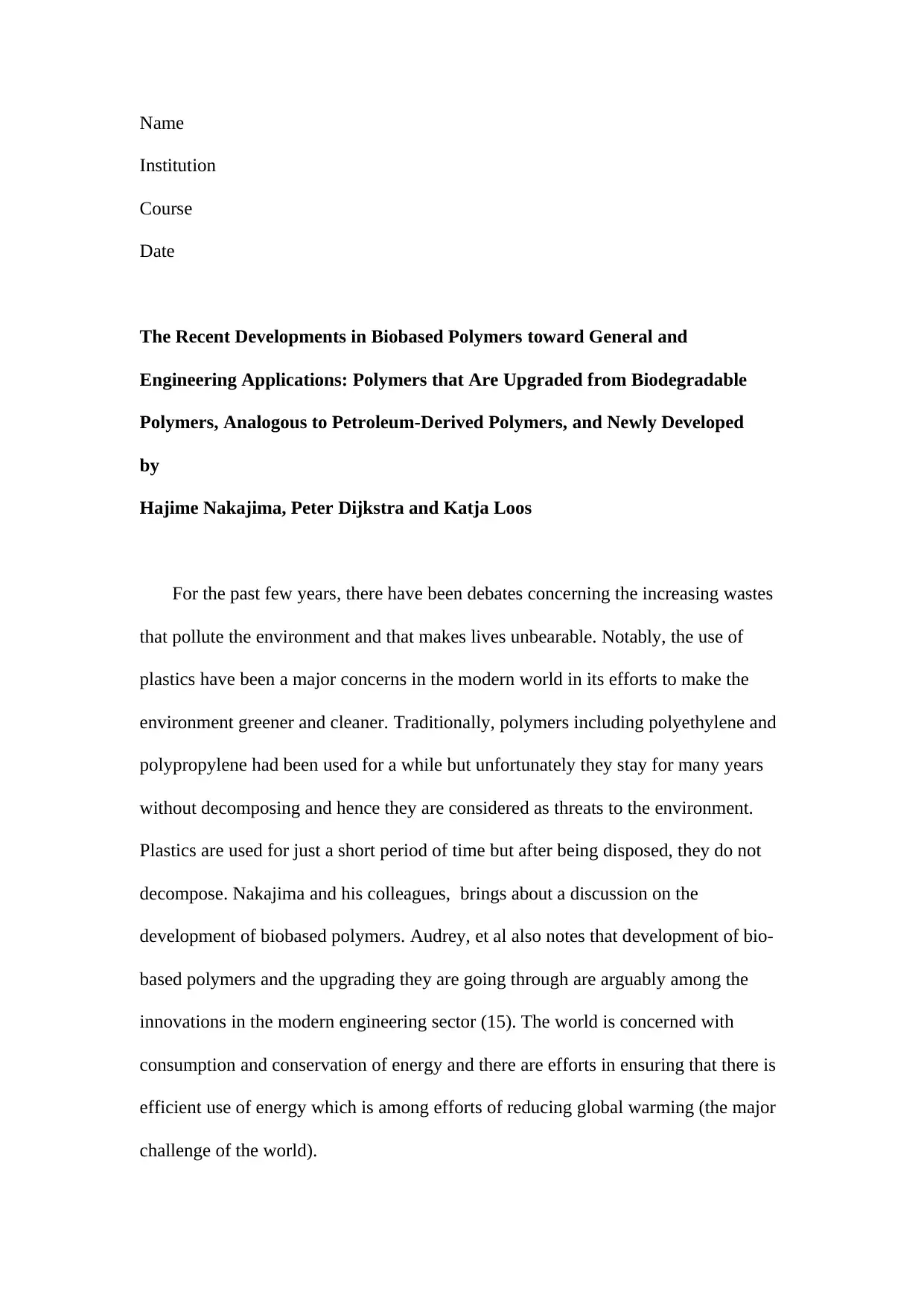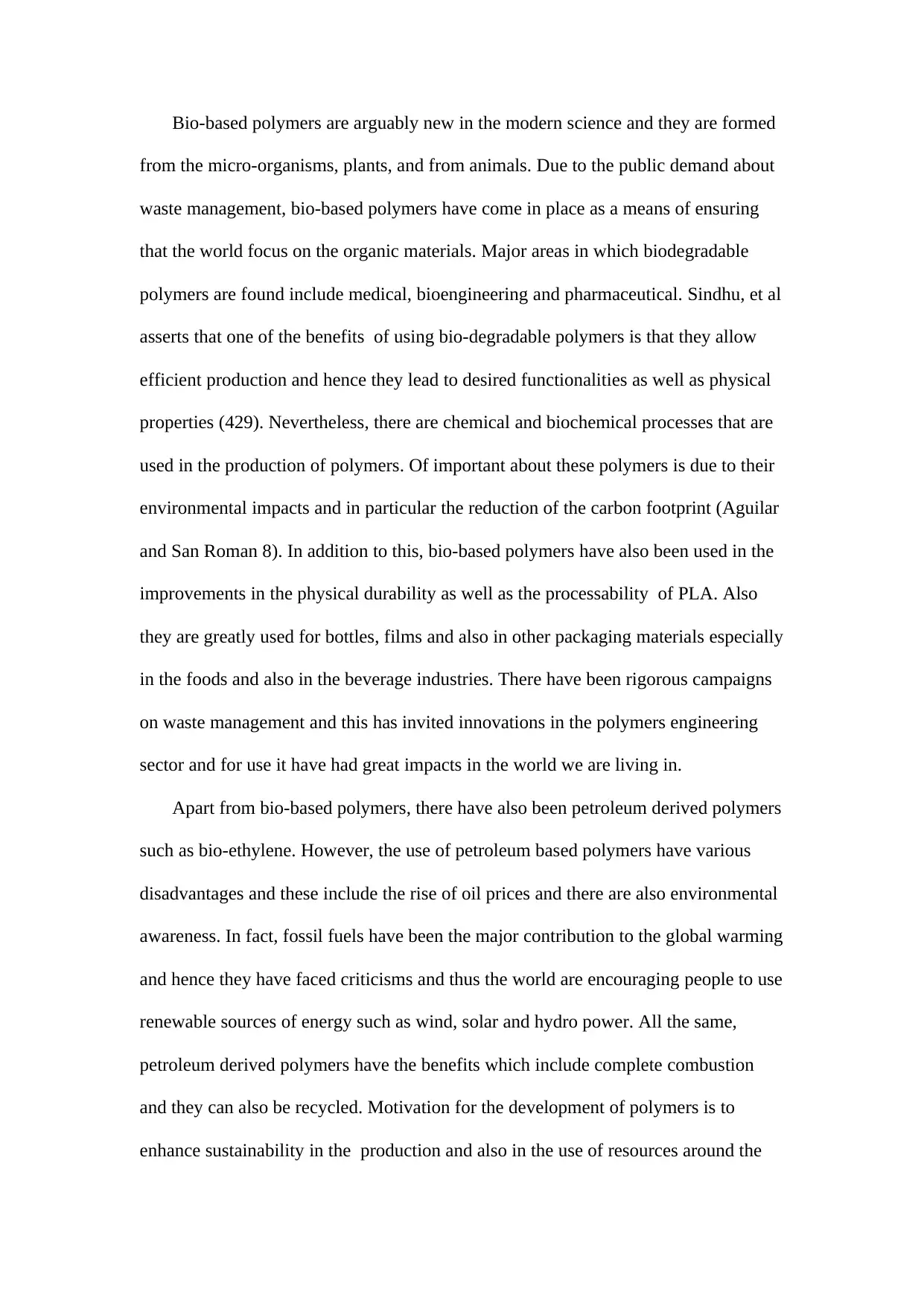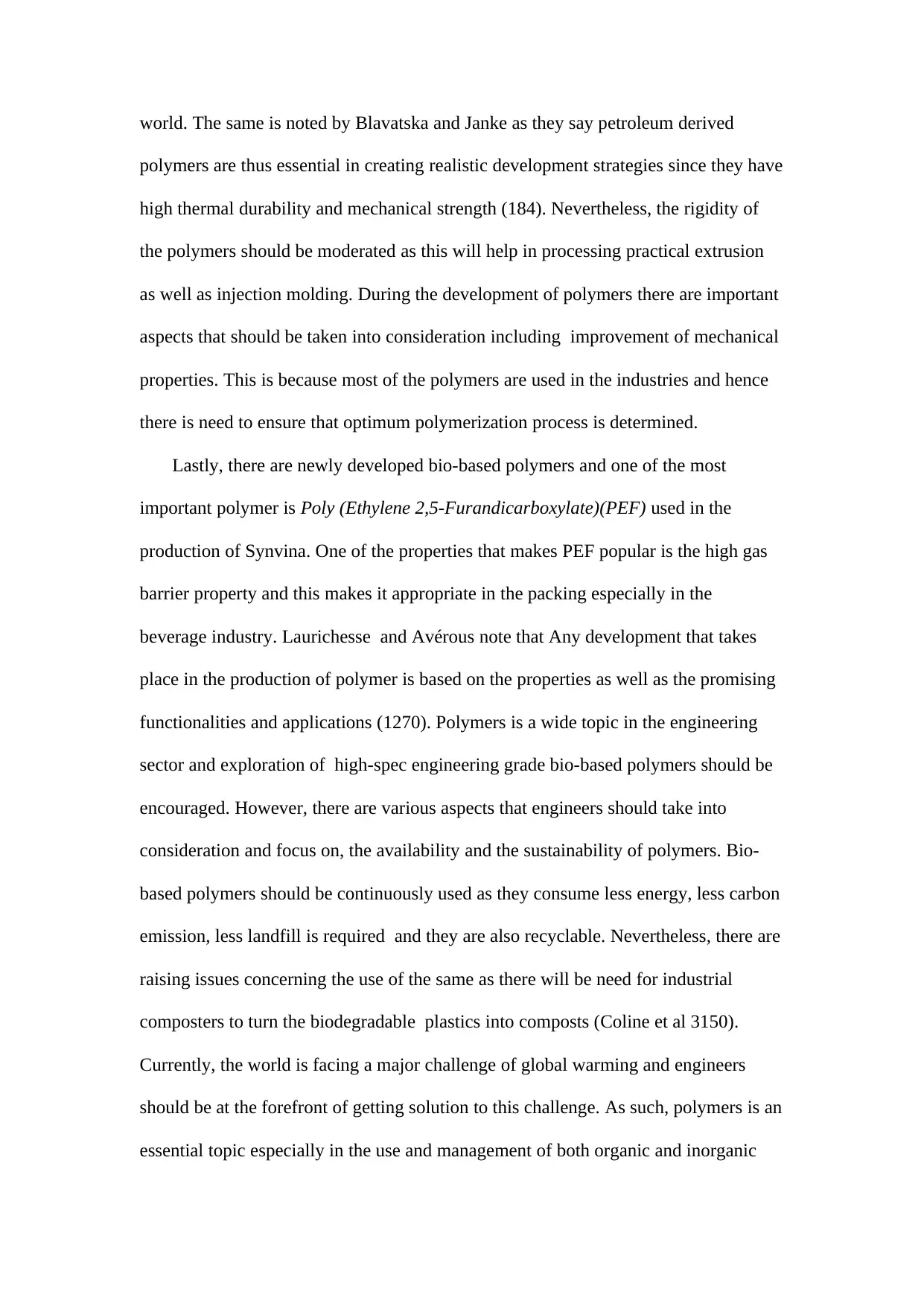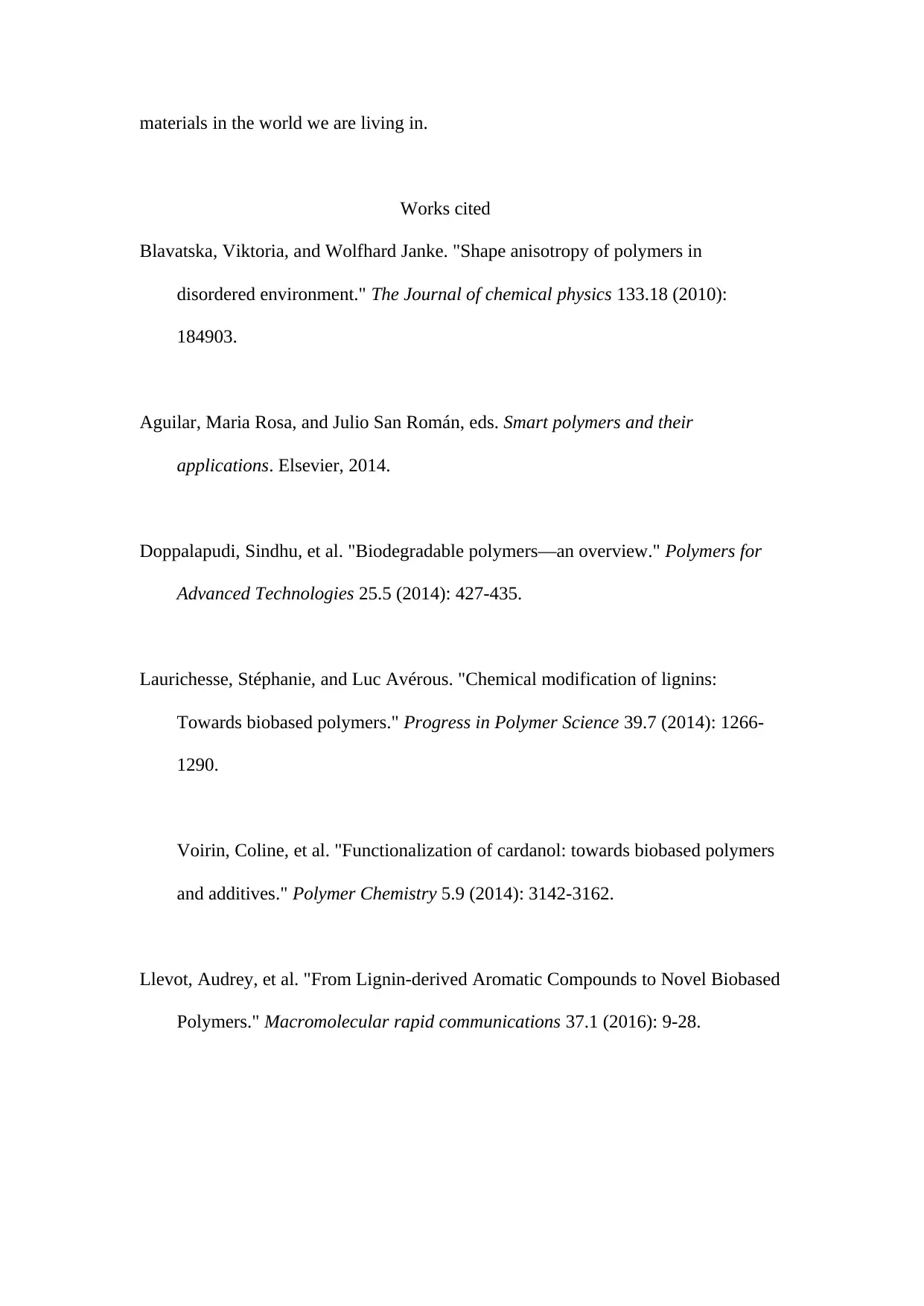Exploring Recent Developments in Biobased Polymers for Applications
VerifiedAdded on 2023/06/10
|4
|1115
|368
Essay
AI Summary
This essay explores the recent developments in biobased polymers, highlighting their importance in addressing environmental concerns associated with traditional plastics. It discusses the shift towards bio-based polymers derived from microorganisms, plants, and animals, driven by the need for waste management and reduced carbon footprints. The essay also touches upon the applications of these polymers in medical, bioengineering, pharmaceutical, and packaging industries. It compares bio-based polymers with petroleum-derived polymers, emphasizing the benefits of the former in terms of sustainability and reduced environmental impact. Furthermore, the essay acknowledges the challenges and considerations in polymer development, such as improving mechanical properties and ensuring sustainability. It concludes by highlighting the significance of biobased polymers in addressing global warming and promoting the use of organic materials, while also mentioning the need for industrial composters to manage biodegradable plastics effectively. This assignment is available on Desklib, a platform providing study tools and resources for students.
1 out of 4











![[object Object]](/_next/static/media/star-bottom.7253800d.svg)